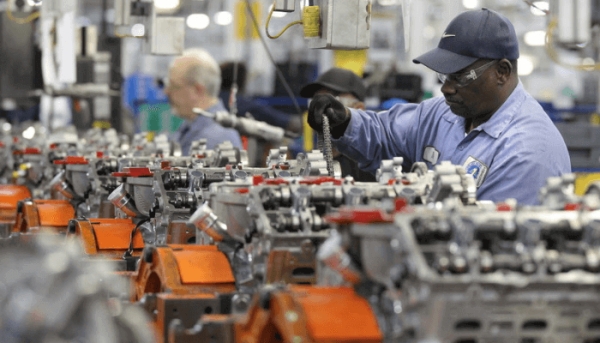•As MAN loses legal battle on electricity tariff hike
The manufacturing sector in Nigeria is facing existential threats with the escalating costs of energy, amongst other binding constraints, driving up production and logistics costs thus putting the sector on the brink of collapse.
Manufacturers over time have raised the alarm over the damaging impact of the rising cost of energy, which has seen the pump price of petrol rise by about 430 per cent and electricity tariff up by 212 per cent for ‘Band A’ consumers over the past year.
On April 3, NERC approved an increase in electricity tariff for customers under the Band A classification. The commission said customers under the category, who receive 20 hours of electricity supply daily, would begin to pay N225 per Kilowatt-hour (kWh) up from N66/kWh, but later reduced it to N209/kWh.
MAN had labelled the hike in power tariff as detrimental to economic growth and in its quest for survival, instituted a legal action at the Federal High Court in Lagos against the Nigerian Electricity Regulatory Commission (NERC) and joined the electricity distribution companies (DisCos) as respondents to challenge the implementation of electricity tariff hike.
The manufacturers sought four reliefs: that due process stated in the Act for the review was not fulfilled before the DisCos applied to NERC for the tariff review on 31 July 2023; and that regulatory requirements for tariff reviews were not followed before NERC issued the Supplementary Order of 3 April 2024 and the subsequently reviewed rate of 6 May 2024.
MAN also held that placing the burden of the tariff increase on only Band “A” feeders and leaving out other bands amounted to discrimination against such consumers; and that the defendants must comply with administrative procedures for tariff review before rightfully implementing the April and May Supplementary Orders.
NERC however objected to the suit, stating that MAN’s case constitutes an abuse of court processes, being hasty and prematurely filed without following due process of the law.
But in a significant setback to the manufacturers’ efforts to reverse the electricity tariff to its previous price, the court struck out the case.
In the judgment delivered on 7th October 2024, the court considered all the parties’ arguments and ruled that MAN’s suit was an abuse of court process being premature and without due regard to the provisions of section 51 of the Electricity Act 2023.
The court also held that MAN’s case disclosed no reasonable cause of action, as it had not exhausted the dispute resolution mechanism. It thus held that the suit was not instituted with due process of law, and consequently struck out the case.
The development represents a significant setback in the manufacturers’ efforts to reverse the electricity tariff to its previous price, which means the sector will continue to operate at high production costs, with the attendant consequence of low sales, increased unsold inventory, probable shutdown and loss of jobs.
President of MAN, Francis Meshioye, had said that the policies of the federal government in the last year have made manufacturing businesses unattractive in Nigeria, lamenting that the growth of manufacturing is seemingly not on the front burner of the federal government.
“Major contributors to Nigeria’s rising inflation are food and energy. If you look at the electricity tariff cost, it moved from N66/kWh to N209/kWh. If you look at the percentage increase, you discover that it is not marginal. This has affected the manufacturing business generally,” he stated.
Director General of MAN, Segun Ajayi-Kadir, said: “The exponential increase in the face of inadequate electricity supply is inimical to the competitiveness of Nigerian products and businesses and will definitely exacerbate the impact of high cost of production.”
He had earlier lamented that diesel is taking 80 percent of the profit of surviving manufacturing firms in the country, wondering “which manufacturer can cope with that astronomical price for energy to produce?”
He noted that while there had been a slight reduction in diesel prices, largely due to the Dangote refinery, the costs remained burdensome for manufacturers. “We have seen an improvement, but the cost is still high,” he said.
Ajayi-Kadir painted a grim picture for the sector’s performance in the fourth quarter, while identifying rising interest rates, high diesel prices, and electricity tariff hikes as major obstacles for the sector.
“Earlier in the year, we imagined that the second half would be better. But rather than experience an upswing, we have continued to have a depression,” he added.
In its second quarter, Q2’24, Manufacturers CEO Confidence Index (MCCI) survey, MAN ranked the exorbitant increase in the electricity tariff as one of the major challenges facing their operations.
“All the current indicators of manufacturers’ confidence went south due to the exorbitant increase in the electricity tariff, the aggressive hike of the interest rates, the high exchange rate, the persistent inflationary pressure, and the recurrence of fuel scarcity, amongst others.
“The situation calls for big concern as the business environment begins to threaten the longstanding resilience of many manufacturers,” the report added.


